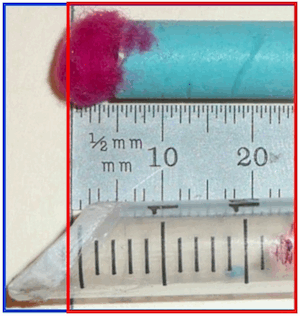Auditory processing disorders are one of the more controversial issues in audiology. I think we have reached the point were we all agree that auditory processing disorders exist, but how to diagnose, who can diagnose, and how to treat are up for debate. Can a speech-language pathologist, or psychologist make the diagnosis or only an audiologist? Do you really have to wait until the child is 7 or can we make the diagnosis earlier? Those of us who have done lots of APD evaluations know that most children who come in for an evaluation have a history which is similar to others. Are there clues early which indicate the possibility that we could make the diagnosis and begin treatment earlier?
An article in the April 2018 issue of Hearing Review by Abramson et al, and another by Lucker, discuss some of these issues. Some of the information is from their articles and others are from my experience with APD.
APD: Who can make the diagnosis?
Audiologists believe that the diagnosis has to be made by an audiologist in a carefully controlled environment with specific testing. Speech-language pathologists can do some of the testing but not all. Speech-language pathologist will identify language learning disorders and those may be occasionally confused with APD.
Understanding the diagnosis.
The term is Central Auditory Processing Disorder is used to make it clear that there is a relationship between the central and peripheral auditory systems. CAPD or APD has been identified in people with listening, learning, reading, and language disorders as well as with neurological lesions beyond the cochlea. Children likely have more diffuse neuroanatomical abnormalities than adults.
While audiologists are uniquely qualified to make the diagnosis of APD, as well as provide some of the treatment, children can have significant comorbidities such as language learning disorders which will require a speech-language pathologist who has significant experience working with children with auditory based language learning disorders.
Auditory information is transmitted through the auditory system by neural impulses. Specific tests of auditory processing measure responses to neural impulses. Listening is the key to how we learn and central auditory processing is fundamental to listening. Children need to hear and be able to interpret sound in order to learn language. Hearing loss is obviously one difficulty that can interfere with using audition to learn but any disruption to the auditory system will also be significant.
Treatment
Auditory based therapies can significantly improve auditory skills in both children and adults with APD. Research using both behavioral and electrophysiological testing has demonstrated that treatment for APD can be effective. Therapy should be deficit specific. One general therapy does not work well for all components of APD. Research has demonstrate the benefit of remote microphone systems for children with difficulties hearing in noise or with auditory attention problems. While treatment for APD is within the scope of practice of audiology, the great majority of audiologists do not include therapy in their practices, choosing to refer children to speech-language pathologists or listening and spoken language specialists. They do take responsibility for remote microphone systems.
Testing children under the age of 7
Most of the standardized tests for APD begin at age 7. A few have standards for children below age 7. The problem with waiting until a child is 7 is that there are significant learning activities that take place before age 7. Significant language learning skills and basic literacy starts long before age 7. If we do not start to provide remediation before age 7 children have to play a game of catch-up which is often very difficult to successfully accomplish. When a family expresses concern that might indicate an auditory processing disorder, evaluation should begin as soon as possible so that, if an APD is identified, treatment can begin.
Initial testing should begin with a complete audiological evaluation with complete speech perception testing in quiet, at both normal and soft conversational levels and in competing noise. Additional APD testing can be performed with the tests that are standardized for younger children. For very young children, if the speech perception testing will indicated that the child is not understanding speech in all conditions, while we may not be able to make an APD diagnosis, we can certainly provide auditory based listening therapy which can improve perception.
CAPD or APD is serious
Auditory processing issues should not be ignored. They can have a critical impact on learning. Children should be referred for evaluation as soon as concern develops. Hearing evaluation should be the first evaluation. I cannot tell you how many children were refereed to me for an APD evaluation who, after a complete hearing test, were diagnosed with APD.
If hearing testing is normal and history suggests it is appropriate, an APD evaluation should be obtained. If APD is identified, the most qualified person should begin to work with the child.
*featured image courtesy af.mil








OAE’s may provide insight into why noise is processed more than coded language. Efferent action at the outer hair cells my generate more amplification than is necessary at any given instance of time. The cochlear amplifier perhaps goes into overdrive, and creates masking of wanted sounds.
I wish you were correct in believing that we all agree APD exists. Many of your colleagues in ASHA do not believe that it exists and that the problem is in the linguistic cortex as either receptive or expressive language. They do not acknowledge that in order to get to the linguistic cortex, the sound has to travel through the auditory pathways.
In addition, there are a number of audiologists who seem to be doing everything they can to “mold” the diagnosis and perception of APD to their own understanding and interpretation of it. Ear and Hearing has announced that henceforth, they will no longer publish articles on APD unless it is paired with another cognitive disorder.